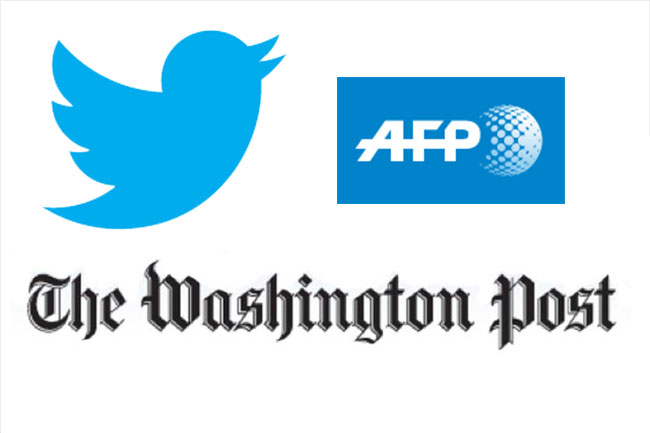Het tweeten van foto´s geeft geen toestemming voor gebruik aan derden
U.S. District Court Southern District of New York 14 januari 2013, No. 10 Civ. 02730 (Agence France Presse tegen Daniel Morel tegen Getty Images) In't kort: Buitenland. Auteursrecht, twitter, licentie, foto's. Agence France Presse dient een vordering in tegen fotograaf Daniel Morel strekkende tot vaststelling dat AFP de auteursrechten van Morel niet heeft geschonden, met betrekking tot bepaalde foto's voor commerciële gebruik. In reactie hierop heeft Morel een tegenvorderingen ingediend tegen AFP, Getty Images, Inc. en the Washington Post (hierna: AFP e.a.). Morel stelt zich op het standpunt dat AFP e.a. inbreuk hebben gemaakt op zijn auteursrechten en daarmee de Digital Millennium Copyright Act (DMCA) hebben geschonden. Morel heeft foto's van na de aardbeving in Haïti geplaatst op zijn Twitter en Twitpic-account. Ter discussie staat of de foto's zodra deze zijn geplaatst vrij beschikbaar zijn.
In't kort: Buitenland. Auteursrecht, twitter, licentie, foto's. Agence France Presse dient een vordering in tegen fotograaf Daniel Morel strekkende tot vaststelling dat AFP de auteursrechten van Morel niet heeft geschonden, met betrekking tot bepaalde foto's voor commerciële gebruik. In reactie hierop heeft Morel een tegenvorderingen ingediend tegen AFP, Getty Images, Inc. en the Washington Post (hierna: AFP e.a.). Morel stelt zich op het standpunt dat AFP e.a. inbreuk hebben gemaakt op zijn auteursrechten en daarmee de Digital Millennium Copyright Act (DMCA) hebben geschonden. Morel heeft foto's van na de aardbeving in Haïti geplaatst op zijn Twitter en Twitpic-account. Ter discussie staat of de foto's zodra deze zijn geplaatst vrij beschikbaar zijn.
De vordering van Morel, dat AFP e.a. inbreuk hebben gemaakt op zijn auteursrechten, wordt toegewezen. De foto's van Morel mogen zonder zijn toestemming niet worden gebruikt.
The reference in the Twitter TOS to use of content by “other users,” and that the license authorizes Twitter to “make your Tweets available to the rest of the world and to let others do the same” are not to the contrary. First, the reference to “other users” occurs in a paragraph of the Twitter TOS addressing the user’s responsibility for the content they post, not the paragraphs discussing the licenses granted under the Twitter TOS. Moreover, even assuming that these statements grant some form of license to third parties (“other users”) to, for example, re-tweet content posted on Twitter—a question not before the Court—they do not suggest an intent to grant a license covering the activities at issue here. To the contrary, the phrase “other users” suggests that any such license may be limited to use of the material on Twitter; otherwise, the Twitter TOS would simply refer to “others” rather than “other users.”When read in the context of the Twitter TOS as a whole, this phrase is not sufficient to create a genuine dispute as to whether the Twitter TOS necessarily require the license claimed by AFP. AFP and the Post raise no other defenses to liability for direct copyright infringement and, in fact, concede that if their license defense fails—as the Court has determined that it does—they are liable for direct copyright infringement. Getty, however, raises further defenses to liability, which the Court now considers.


























































































